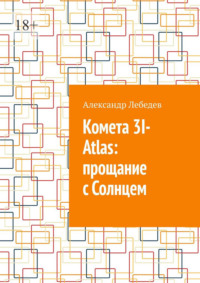Новинки
Столкновение с пьяной компанией – и смерть? Или новая жизнь в новом теле? Никто и не догадывается, что в теле княжны Марии Горской поселилась женщина двадцать первого века. И афишировать свое присутствие Маруся не собирается. Равно как и двигать прогресс, поражать всех своими успехами в магии или совершать научно-техническую революцию. Нет уж! У нее свои цели и задачи. Выжить. Завести семью. Свое …
На Рейтане женщина никогда не снимает перчатки. Но если хочешь сохранить свободу – не пытайся узнать почему. Кадеты S-класса всегда выполняют поставленную задачу. Но если не готов потерять всё – не спрашивай о цене. Он – третий правитель Рейтана, правая рука главы планеты. Его стихия – хладнокровные убийства, нелегальная торговля и шантаж, если потребуется. Она – специалист высочайшего уровня язык…
Война построила Кисианскую империю. Война ее и разрушит. Спустя 17 лет после восстания Кисианскую империю объединяет лишь твердая рука Бога-Императора. Но измена разрывает шаткий союз с Чилтеем, и все, что было выиграно, рушится. Принцесса Мико мечтает заявить права на трон, но путь к власти может навсегда разделить ее семью. В Чилтее Кассандру Мариус преследуют голоса мертвых. Отчаяние толкает ее…
Ещё вчера Леся была пиарщицей из Москвы. Обычная жизнь, бесконечные дедлайны, звонки, отчёты. Но сегодня… она — Светлая Затерянная в мире, где по ночам бродят падальщики и призраки, где князья плетут интриги, а одно неверное слово может стоить ей жизни. Что это — съёмки фильма, квест… или судьба? Неважно. Потому что второго дубля здесь не будет. Её ждут зловещие вороны, кровавые руны, выжженные …
Книга основана на реальных событиях, произошедших в 2025 году в нашей Солнечной системе. Объект, названный кометой 3I/Atlas, демонстрирует ученым всего мира целый спектр аномалий. Современная наука бессильна их объяснить. Связано ли это с тем, что мы еще слишком мало знаем о разнообразии космоса, или с тем, что объект вовсе не комета, а инопланетный корабль? Официальные службы при этом скрывают фа…
В этой книге рассказывается об охране Земли от инопланетных монстров, киборгов и роботов, которые посчитали, что защитить ее некому. Но они ошиблись… В фантастических сказках в качестве главных героев присутствуют волшебные персонажи, которые решили, что мне и моим друзьям не хватает приключений. Они устроили нам веселую жизнь, но в конце наградили нас тремя желаниями, сундуками с золотом и драгоц…
Эльза - симпатичная девушка в возрасте 19 лет узнает о неизлечимой болезни. В отчаянии она готова сразиться даже с самой смертью... Но смерть неожиданно приходит в виде озорной подружки-ровесницы по имени Лилит. Лилит даёт надежду Эльзе, более того, они становятся подружками. Задумываясь о том, насколько справедлива или несправедлива жизнь, Эльза после мучительных раздумий всё же решается попросит…
Это роман о власти и страсти, о блуждании в лабиринте, о любви женщин к самому таинственному герою — царю Афин Тезею, о противостоянии Зевса и Посейдона, о путешествии к Аиду, и о Медее, сумевшей удержать Тезея, но не ставшей счастливой. Часть книги (драмы) опубликована в книгах «Красавицы и чудовища» и «Цербер для Геракла».
Вторая книга повести «Тайна безымянных островов» — «Братство Ключа». Ордены не унимаются, — и обитателей Змеиного острова поджидают новые опасности. Кроме того, в сборник включены новые рассказы жанра русское фэнтези «Кольчужка» и «Хвеномен» и два рассказа «Капкан» и «Ротор», ранее опубликованные в сборнике «Квест».
Встречайте Зогга — самого неудачливого дракона в истории. Его сокровища? Не золото, а долговая расписка от жадных гномов-банкиров. Его легендарное логово? Вулканическая пещера с джакузи, за которую нужно вносить ежемесячный платеж. Чтобы не лишиться крыши над головой, Зогг пускается во все тяжкие: от постановочных битв с рыцарями (со страховкой!) до консультаций для принцесс по грамотному похищени…
«Эта книга для тех, кто знает, что самая опасная магия — это опечатка, самый уютный дом — это кафе с призраками, а самая важная работа — это корректура реальности».
За последние полгода пропало семь женщин. После похищения, домой к эти женщинам, приходил конверт без подписей. В конверте был красный бисер. И всё! Никаких требований или объяснений, никаких свидетелей или следов. Мистика какая-то! Дело попало в особый отдел Всеслава Оладьева, а он не привык сдаваться!
В этом сборнике фантастических рассказов описаны необычайные события, которые вдруг произошли со мной и моими друзьями: сначала экватор собрался переместиться к нам поближе — на Северный Урал, потом мы построили звездолет и взяли на абордаж космический крейсер инопланетян. Я вспомнил теорию относительности и сделал все, чтобы подружиться с гномами и освободиться от проклятия золотой аномалии. А та…
Как может отразиться противостояние спецслужб на безопасность полёта пассажирского самолёта? Почему в воздух могут одновременно поднять истребители ВВС США и ВКС РФ? Что может произойти, если пилотам в полёте станет плохо? Ответы на эти вопросы в книге. А пока пассажиры поднимаются на борт комфортабельного авиалайнера, не подозревая, какие события их ожидают во время, казалось, обычного рейса.
Реликвии России - они бесценны и являются инструментами тонкого магического мира. Одним из таких артефактов является талисман "Кольцо власти", который охраняет территорию Великой Державы и помогает возвращать исконно русские земли, потерянные в силу обстоятельств.














